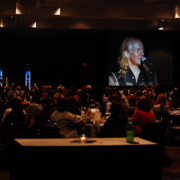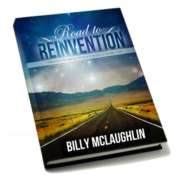The Power of Music to Motivate Change
Music makes things happen. It can strike a chord in people’s hearts, unite them, awaken their feelings and stir them into action. History is filled with songs, ballads and drum beats that inspired a new vision—such as the making of a new republic, recognizing civil rights, and feeding the world (which Live Aid pursued in the 1980s).
Think of the ways in which music moves large groups of people in your world: a band proudly performing a John Philip Sousa march in an Independence Day parade, a high-school jazz ensemble rousing fans at a homecoming game or a lonely trumpet playing taps at a Memorial Day observance. Music has been part of humanity since the beginning of time. It is so integral to our culture that it becomes easy to take it for granted. Yet the power of music to organize, persuade and enliven the spirits of people is irrefutable.
Mythologist Joseph Campbell, whose works inspired artists George Lucas and the Grateful Dead, saw music as something that can turn on life’s energy. He hadn’t given much thought to rock music until he had been invited by Bob Weir to attend a Grateful Dead concert along with 8000 young fans. Amazed by the exuberance he observed, he described the rapture as a “wonderful fervent loss of self in the larger self of a homogeneous community.”
You don’t have to organize a concert or showcase a world-famous rock band to leverage the power of music to inspire your group or heighten the awareness of a special cause. There are many ways in which music can enlighten, entwine and invigorate the people on your team. For example, you can use music as part of a ritual for your gathering. Have you ever attended a seminar, play or pep rally that was preceded by a musical recording? Music sets the tone of the event; it helps people to prepare emotionally and energetically.
Consider designating a theme song to represent the work that you and your team are gathering together to perform. It will symbolize the feelings and energies that the team generates as a group. It is something that each member of the team can take back with them as a reminder of the work they are doing and the goals they are striving to achieve. When they sing or listen to the theme song in the car or while working independently, it immediately triggers the same sensations as the group experience.
More importantly, music allows for moments of celebration that breaks up the stress and strain of work. Through ritual, rhythm and ceremony, music adds the essential element of celebration to the process of creation, whether that creation has to do with a job or personal aspiration. As with the ritual of opening meetings or events with a particular type of music, the rhythm of the music also sets an energetic tone. There is also rhythm to the celebration itself. Like taking in a deep breath of inspiration, celebrating with music gives people a chance to reflect upon what they’ve achieved together, realign their purpose, refresh and restore their energies to carry on with what they’ve begun.
When you attend a presentation by Billy McLaughlin, you will recognize immediately the homogeneous community that Joseph Campbell described. When hearts are joined the mind opens up as one and new shared insights begin to form. At moments such as these, inspiration opens the gridlock caused by indecision, confusion or fears. From Billy’s perspective, nothing is impossible. Celebrate with him through his message and music and you will understand his sincerity when he says “Make every day the best day you possibly can!”
The next time that you encounter a new project or become saddled with a difficult task, explore the rhythms of the mood that takes you to a place beyond struggle and doubt. Find a musical arrangement—lyrics or melody—that represents not the condition that challenges you, but the destination you hope to reach. It’s a technique as old as time; it has moved others to achieve great things throughout history and it will work for you, too.




